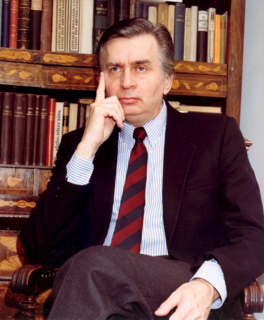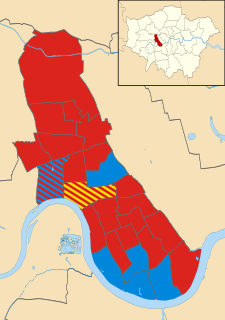
The Democratic Party (DP) was the name of the South African political party now called the Democratic Alliance. Although the Democratic Party name dates from 1989, the party existed under other labels throughout the apartheid years, when it was the Parliamentary opposition to the ruling National Party's policies.

The Social Democratic Party is a social-democratic political party in Andorra.

Elections in Benin take place within the framework of a multi-party democracy and a presidential system. Both the President and the National Assembly are directly elected by voters, with elections organised by the Autonomous National Electoral Commission (CENA).

Elections in Gabon take place within the framework of a presidential multi-party democracy with the Gabonese Democratic Party, in power since independence, as the dominant party. The President and National Assembly are directly elected, whilst the Senate is indirectly elected.

Elections in Niger take place within the framework of a semi-presidential system. The President and National Assembly are elected by the public, with elections organised by the Independent National Electoral Commission (CENI).
Elections in Hungary are held at two levels: general elections to elect the members of the National Assembly and local elections to elect local authorities. European Parliament elections are also held every 5 years.
The Democratic Party is a center-right party in Bulgaria led by Alexander Pramatarski. The party is a member of the European People's Party (EPP).

Parliamentary elections were held in Hungary on 9 April 2006, with a second round of voting in 110 of the 176 single-member constituencies on 23 April. The Hungarian Socialist Party emerged as the largest party in the National Assembly with 186 of the 386 seats, and continued the coalition government with the Alliance of Free Democrats. It marked the first time a government had been re-elected since the end of Communist rule.

Parliamentary elections were held in Hungary on 10 May 1998, with a second round of voting in 175 of the 176 single member constituencies on 24 May.

Legislative elections were held in Romania on 30 November 2008. The Democratic Liberal Party (PDL) won most seats in both the Chamber of Deputies and the Senate, although the alliance headed by the Social Democratic Party (PSD) won a fractionally higher vote share. The two parties subsequently formed a governing coalition with Emil Boc of the PDL as Prime Minister.

The 1990 Hungarian parliamentary elections were held in Hungary on 25 March 1990, with a second round of voting taking place in all but five single member constituencies on 8 April. They were the first completely free and competitive elections to be held in the country since 1945, and only the second free elections in the country's history. The conservative, nationalist Hungarian Democratic Forum (MDF) beat the liberal and more internationalist Alliance of Free Democrats, which had spearheaded opposition to Communist rule in 1989, to become the largest party in parliament. The Hungarian Socialist Party, the former Communist party, suffered a crushing defeat, winning only 33 seats for fourth place.
József Faddi was a Hungarian agronomist and politician, member of the National Assembly (MP) for Kunszentmiklós between 1990 and 1992.
The Party of Independence and '48, also known mostly by its shortened form Independence Party, was one of the two major political parties in the Kingdom of Hungary within Austria-Hungary, along with the Liberal Party then National Party of Work. During its existence, the F48P strongly opposed the Austro-Hungarian Compromise of 1867. The party was revived after the fall of the Hungarian Soviet Republic and restoration of the monarchy.
The National Radical Party was a political party in Hungary between 1930 and 1938.
The Independent Hungarian Democratic Party was a political party in Hungary in the period after World War II. The party was revived after the end of communism in 1989–90, but remained unsuccessful.
The Agrarian Alliance – National Agrarian Party was a political party in Hungary.

The Party for the Full Emancipation of the Roma of Macedonia is a political party in North Macedonia representing the Roma minority.

The 1986 Hammersmith and Fulham Council election took place on 8 May 1986 to elect members of Hammersmith and Fulham London Borough Council in London, England. The whole council was up for election and the Labour party gained overall control of the council.

General elections were held in Trinidad and Tobago on 7 September 2015. The date of the general elections was announced by Prime Minister Kamla Persad-Bissessar on 13 June 2015. The result was a victory for the opposition People's National Movement, which received 52% of the vote and won 23 of the 41 seats in the House of Representatives.














